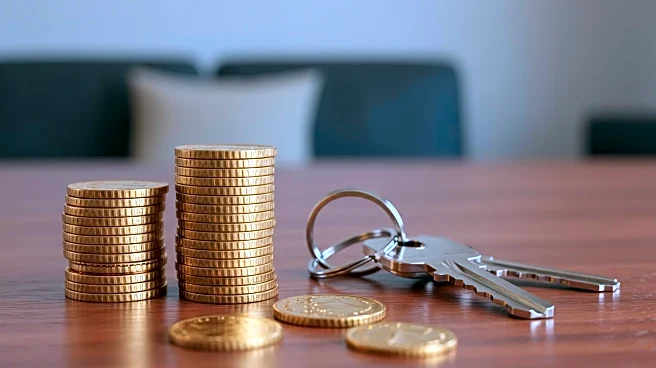What's Happening?
Reverse mortgages are gaining attention as a financial tool for seniors facing inflation and high interest rates. These loans convert home equity into cash without requiring monthly payments, providing financial relief for retirees. However, reverse mortgages come with risks, including high fees and potential negative equity in declining real estate markets. Experts advise considering alternative home equity products if the drawbacks of reverse mortgages are too significant. Despite these concerns, reverse mortgages can help seniors manage unexpected medical expenses and improve cash flow in today's economic climate.
Why It's Important?
Reverse mortgages can be a valuable resource for seniors, offering tax-free liquidity and flexibility in accessing home equity. This financial tool is particularly beneficial for retirees on fixed incomes, allowing them to offset inflationary pressures. However, the high costs associated with reverse mortgages, including origination fees and ongoing interest, can quickly deplete home equity. Additionally, declining home values in certain markets pose risks of negative equity, impacting long-term financial security. Seniors must weigh these factors carefully and consider alternative options to maximize their financial stability.
Beyond the Headlines
The ethical implications of reverse mortgages include the potential impact on heirs, as negative equity can leave little to pass on. Seniors should assess local real estate trends and consult financial advisors to make informed decisions. Understanding the long-term effects of reverse mortgages is crucial, as they can influence retirement planning and estate management. Exploring other home equity products, such as HELOCs or home equity loans, may offer more favorable terms for some homeowners.











